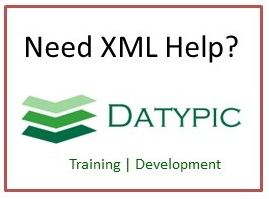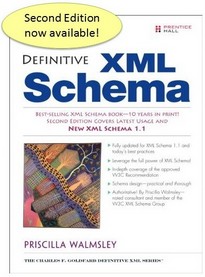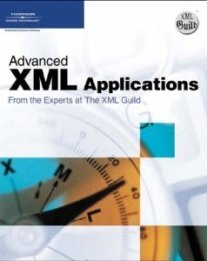ShipmentUnitType
The Amount contains the total sales price for the contents of the shipping unit. The TotalAmount contains the sum of the Freight Charges and the Sales price (Amount) for the shipping unit. If C.O.D. (Collect On Delivery) freight terms were specified for the transaction, this is monetary amount that the carrier is to collect as payment from the customer upon shipment of the shipping unit.
Complex type information
Namespace: http://www.openapplications.org/oagis/10
Schema document: Common.xsd
Properties: ID: oagis-id-0ebf3bb5a7c243a199a368ebd242358e
Content
- Sequence [1..1]
- TrackingID [0..*] TRACKINGID is a unique identifier for the purpose of tracking an individual package or shipment Examples of a valid TRACKINGID include: •An express parcel tracking number as typically assigned by UPS, DHL, Fedex or other similar carriers. •A UCC (Uniform Code Council) Serialized Shipping Container (SCC-18) identifier, as assigned by the shipper. •A "Pro Number" (Progressive Number), as assigned by an LTL (less-than-truckload) freight carrier. Since the same Pro Number can be assigned to multiple shipping units within an LTL shipment, the SHIPUNITSEQ and SHIPUNITTOT field identifiers may be used to identify the individual pieces. •The unique identifier of a motor freight trailer, railroad box or tank car, ocean freight container or other transportation vessel.
- ShipUnitSequenceID [0..1] In a set of similar shipping units for a delivery, ShipUnitSequenceId represents a particular unit out of the total set. When used in conjunction with ShipUnitTotalId and printed on a shipping unit label or packing list, the receiving partner can easily ascertain whether or not the delivery was complete.
- ShipUnitTotalID [0..1] In a set of similar shipping units for a delivery, ShipUnitTotalId represents the total or final unit in the set. When used in conjunction with ShipUnitSequenceId and printed on a shipping unit label or packing list, the receiving partner can easily ascertain whether or not the delivery was complete.
- ContainerGroupID [0..1]
- ContainerID [0..*] The unique identifier of a container that holds the associated entity. A container is typically used for shipping material. Whether they be raw material or finished goods or piece parts.
- RFID [0..1] Allows an instance of an item to carry any radio frequency identifier (RFID) that maybe used by a supply chain.
- SealID [0..1] Identifies the tamper-proof seal placed on a shipping container to prevent pilfering of the contents.
- Description [0..*]
- Note [0..*]
- DocumentReference [0..*]
- Attachment [0..*] The Attachment represents binary data files that may be included within a BOD. These files replace the paper specifications and drawings attached to a BOD definition to clearly communicate design requirements. This Data Type is optional. Attachment usage is further defined by its position.
- CarrierParty [0..1] Identifies the party that serves as the carrier of the goods or services for the transaction.
- ShipFromParty [0..1] Identifies the party that the goods or services are being shipped or sent from.
- ShipToParty [0..*] Identifies the ShipToParty for the document or the line. In a lot of cases, this is the same as the CustomerParty. In multi-organization purchasing, the CustomerParty may be different from the BuyerParty
- DeclaredValueAmount [0..1] Is the declared monetary value of the contents of a shipping unit or a delivery for insurance purposes.
- ShipmentDateTime [0..1] Is the timestamp that indicates when the associated entity(ies) are shipped.
- ContainsHazardousMaterialIndicator [0..1]
- ExportLicenseRequiredIndicator [0..1] Communicates the need for an export license on a good or service. Valid values are '0' for no license required, and '1' for license required.
- ImportLicenseRequiredIndicator [0..1] Communicates the need for an import license on a good or service. Valid values are '0' for no license required, and '1' for license required.
- ScheduledDeliveryDateTime [0..1] The scheduled delivery date provided by the supplier.
- ActualDeliveryDateTime [0..1] Is the actual delivery date and time of the line item.
- SpecialHandlingNote [0..*] This describes any special, physical handling needs that the freight might have. For example, the need for a lift gate
- Status [0..1] Indicates the status of the associated object by providing the Status Code along with a description and when the status is effective.
- DunnageWeightMeasure [0..1] Specifies details of the shipped unit weight
- TareWeightMeasure [0..1] Tare weight of the associated Entity. The Tare weight is the weight of the packaging when empty (in the case of a pallet the weight of the empty pallet) that when subtracted from the Gross weight results in the Net weight.
- NetWeightMeasure [0..1] Net weight of the associaed item. The net weight is calculated by subtracting the tare weight or the weight of the container from the GrossWeight.
- GrossWeightMeasure [0..1] Gross weight of the associated entity. The total weight of the entity without reduction of packaging or container. I.e The Gross wieght of a pallet of goods includes the weight of the pallet.
- NetVolumeMeasure [0..1]
- TotalVolumeMeasure [0..1] Quantifies the volume, or amount of space, that is occupied by an item, container or shipment.
- DistributeCharge [0..*] Specifies the details for allocating a portion of a charge properly
- EstimatedFreightChargeAmount [0..1] Is used to describe the estimated cost of transporting the items or products being sold, produced or purchased. This amount is usually determined at the time the sales order is created and is quoted to the customer, before the actual shipping method, weight or number of units is known. This is also customarily known as a general "Shipping and Handling" charge.
- FreightChargeAmount [0..1] Is used to report the total price charged to the customer for transporting the items or products being sold, produced or purchased. This amount is determined by the shipping partner and/or reported by the carrier partner upon shipment or delivery of the product. The shipper's total operational freight cost (which may be different the price charged) can be reported using FreightOperationalAmount.
- SalePriceAmount [0..1] Identifies the sales price for the associated item or object. This could be used to identify the price at a header level or line item level. This price is considered to be exclusive of freight or other taxes or charges
- ShipmentTotalAmount [0..1] This is the sum of the FreightChargeAmount and SalePriceAmount for the shipment. If C.O.D. (Collect On Delivery) freight terms were specified for the transaction, this is monetary amount that the carrier is to collect as payment from the customer upon shipment of all the shipping units
- LoadingDateTime [0..1] Identifies the date and time a shipment loading process is complete.
- EstimatedWeightMeasure [0..1] The estimated weight of an item or object. An estimate is provided as a processing alternative when the actual weight is not known or cannot be calculated exactly.
- LoadingWeightMeasure [0..1] This is the net weight at loading time of a container in which the materials are being shipped.
- Dimensions [0..1] Provides the dimensions of the associated component.
- CountryOfOriginCode [0..1] Represents the identifier of the country of origin of an item, service or shipment
- DestinationCountryCode [0..1] Indicates the country that the item being manufactured is destinated to go to.
- HazardousMaterialCodes [0..1] Provides the hazardous material codes that are associated with the given instance of the item.
- TransportationMethodCode [0..1] Identifies the general type of carrier transportation used to deliver goods.
- ShipmentServiceLevelCode [0..1] Is a generic code that specifies a particular type or quality of carrier delivery service to be used for transporting goods. A generic service level code is often established by shippers to consolidate various equivalent, but differently named, carrier service levels for comparison when "rate shopping" for the lowest cost transportation provider. See CarrierServiceLevel for specifying the carrier's actual service level code.
- PointOfStagingCode [0..1] Identifies the location goods are to be placed prior to loading for shipment.
- TransportationTerm [0..1] The terms of the transportation agreement.
- TransportStep [0..*]
- ExportLicense [0..1] Specifies details of an approval to export a thing
- ShipToLocation [0..1] Identifies the location in which the goods are to be shipped.
- PackingMaterial [0..1] Identifies the materials used in the packing of a product within a container or package. Examples are Styrofoam, bubble wrap etc
- ShippingMaterial [0..1] Identifies and describes the material used to build a shipping unit or container. The ID identifies the material of the container or the shipment package The Description describes the material or container a product or item is shipped in. This is most often used for cases where a product is shipped in a returnable container. Examples include: Steel Case Rail Road Car Special Hazardous Material Case
- ShipmentUnitContainer [0..*] The ShipmentUnitContainer represents information about an intermediate packaging level within the shipping unit. A ShipmentUnitContainer may or may not have ShipmentUnitItem associated with it
- ShipmentUnitItem [0..*]
- ContainerQuantity [0..1] A numeric expression of the number of outer containers for product shipping.
- Extension [0..1] Allows the user of OAGIS to extend the specification in order to provide additional information that is not captured in OAGIS.This is done by defining the additional information in XML Schema and referencing the new schema in the xml instance document through the use of namespaces. Once this is done the additional information defined there can be carried in the BOD XML instance document.The Open Applications Group will make best efforts to quickly consider all proposed submissions.The Extension is always the last element in all components, except where the component has been extended inline.
from type IdentificationTypefrom type ShipUnitBaseTypefrom group TrackingIDGroupfrom group ContainerInstanceIDsGroupfrom group FreeFormTextGroupfrom group ReferencesGroupfrom group ShippingWeightAndVolumeGroupfrom type ShipmentUnitBaseType
Attributes
| Name | Occ | Type | Description | Notes |
|---|---|---|---|---|
| typeCode | [0..1] | CodeType_1E7368 | from type IdentificationType | |
| actionCode | [0..1] | ActionCodeContentType | from type IdentificationType |
Used by
- Element ShipmentUnit
Type inheritance chain
- IdentificationType
- ShipUnitBaseType
- ShipmentUnitBaseType
- ShipmentUnitType
- ShipmentUnitBaseType
- ShipUnitBaseType



